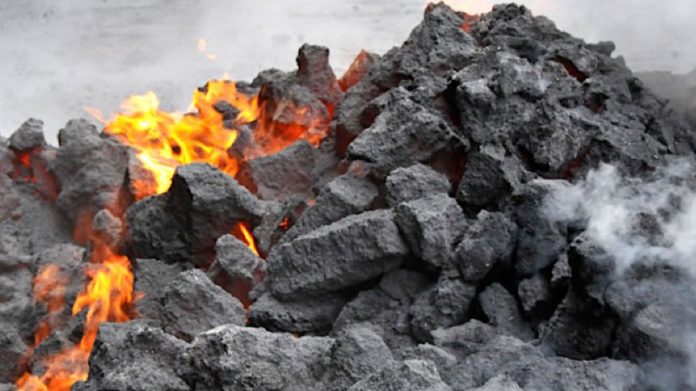
THUNGELA Resources forecast a heavy decline in share earnings for the first half of its financial year owing to lower-than-expected winter energy demand from Europe and Asia which depressed thermal coal prices.
Commenting in a trading update, the coal miner also identified the underperformance of the rail line to Richards Bay in South Africa, which is operated by the state-owned utility Transnet Freight Rail (TFR), as an ongoing “key constraint” in the business.
Thungela’s comments today will come as a reality check to recent bullishness about TFR’s turnaround potential.
The outcome for shareholders for the six months ended June will be a 55% to 69% decline in share earnings to between R7 and R10 per share, said Thungela CFO Deon Smith.
“The underlying operating environment remains uncertain as macroeconomic and geopolitical headwinds persist, alongside continued rail performance challenges in South Africa,” Smith said in his pre-close trading statement.
Thungela realised an average export sales price of $84.66 per ton amid a widening in the discount to the benchmark price for Richards Bay coals of $99.71/t. This was owing to lower quality coal exports as it supplied from stockpiles.
This is partly owing to another decline in volumes delivered into Richards Bay. Two derailments cost Thungela 650,000 tons in sales during the period. Sales from Thungela’s South African operations will be about six million tons compared to 6.3Mt in the first half of last year, a decrease of 4.8%.
At the current clip – in which TFR is estimated to have railed about 46 million tons (Mt) in the first half of the year – Thungela expects its on-mine inventories to rise to 1.1Mt. TFR railed 47.9Mt in 2023 representing a 5% year-on-year deterioration in volumes.
Thungela also mines 3.2Mt to 3.5Mt of thermal coal from Ensham, situated in Australia’s Queensland after buying the mine in 2023. Smith said production was expected to be 1.9Mt (on a 100% basis) which, if maintained, would result in it reaching the upper end of full-year guidance. Sales are expected to be 1.6Mt for the half year.
Coal prices ex-Richards Bay were 18% lower year-on-year for the first six months averaging $99.71 a ton (2023: $121/t). Similarly, the benchmark price for coals sold from Australia were 25% lower, averaging $129.99/t (2023: $172,79/t).
Smith pointed to potential upside in coal prices. “Increased concern” regarding gas supply as a result of the ongoing war in Ukraine could support higher coal prices which has “recently lent support to the Richards Bay benchmark coal price,” he said.
“Furthermore, the lack of availability of high quality coal and the expected restocking in South East Asia following the monsoon season is expected to support the Richards Bay Benchmark coal price, which remains range bound, while any further geopolitical escalation may result in the strengthening of coal prices,” said Smith.











